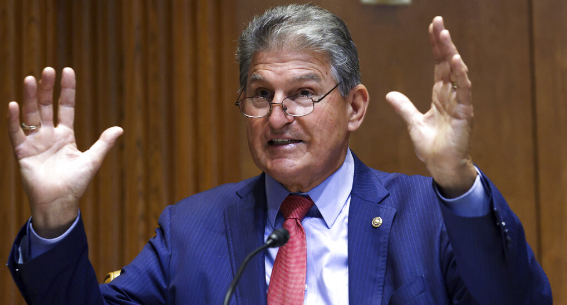End The Filibuster Show
Manchin was for reforming the filibuster before he was against it — but he’s just the latest example of Dems using the rule to avoid governing.
by ANDREW PEREZ
It’s June, and President Joe Biden has only signed one major bill, a $1.9 trillion COVID-19 stimulus package. That’s because a handful of Senate Democrats don’t want to eliminate the filibuster, a rule that requires 60 votes to advance most legislation and allows the minority party to hold up most bills.
The most prominent member of the pro-filibuster group is conservative West Virginia Democrat Joe Manchin — who, it turns out, helped spearhead potential filibuster reforms a decade ago.
But the filibuster saga isn’t simply about Manchin. It’s about the Democratic Party overall, and their continued interest in allowing process to prevent them from governing. It’s a sad, frustrating story no one wants to hear about anymore, but which controls everything that happens in Washington.
Democrats, with their narrow Senate majority, have in their power the ability to end the filibuster. In fact, voting to change the rules and eliminate or reform the filibuster is one of the few things Democrats can actually do on their own with 51 votes — and it would allow them to enact President Joe Biden’s agenda at whatever pace they want.
Instead, the party has consistently and deliberately opted for gridlock.
Republicans used the filibuster to stymy Democrats’ agenda for all of Barack Obama’s two terms as president — including from 2009 to 2010, the only point in Obama’s presidency where Democrats controlled both houses of Congress and had the power to pass whatever legislation they wanted. Democrats kept the filibuster in place and let Republicans grind the Senate to a halt, even though they had 59 votes for much of the time (and 60 for four months).
Nearly five months into Biden’s presidency, very little has changed: Democrats are once again choosing not to use their power to remove a general block on the legislative process. They are stalling during what could be the only time during Biden’s presidency that Democrats have the power to pass his agenda. This opportunity might not last for long: Democrats, due to their narrow Senate majority, could lose full control of Congress at any moment.
A Convenient Excuse
On a basic level, the filibuster is wildly anti-democratic. It is designed to make it harder to pass legislation through what is already a fundamentally undemocratic institution by design, where every state has the same representation, no matter its size.
Southern senators deployed the filibuster against civil rights legislation in the 1950s and 60s, which is why reform advocates are now calling it the “Jim Crow filibuster.”
The filibuster today allows a minority of senators to extend debate on legislation indefinitely, blocking a final majority vote on a bill unless the majority party can find 60 votes to end cloture.
Some Democrats say getting rid of the filibuster would destroy any concept of collegiality between Republicans and Democrats and prevent the parties from working together. It’s a delusional argument, if they believe it at all — Republicans made it extremely clear during Obama’s presidency that they would not help Democrats pass anything, and they are doing so again now.
"One-hundred percent of our focus is on stopping this new administration," Senate Minority Leader Mitch McConnell, R-Ky., declared in May. As McConnell said last week, “it's pretty clear the era of bipartisanship is over."
Other Democrats fear that eliminating the filibuster will allow Republicans to pass any legislation they want when they take back the majority. Of course, Republicans haven’t had much issue enacting their agenda when they have power. But allowing the minority party to block virtually all legislation is hardly a great recipe for Democrats’ legislative or electoral success — just look at the Obama era.
The more obvious reason why Democrats would want to keep the filibuster in place is they don’t want their party to be able to pass real legislation. The filibuster allows Democrats to say they support certain measures while ensuring those measures never become law. It functions as an esoteric, all-purpose excuse for failing — and they get to blame Republicans.
As it stands, Senate Democrats can’t really pass any legislation outside of occasional budget bills — which can pass by simple majority vote under the reconciliation process but can’t involve policy — or pure corporate giveaways. The bulk of the Democratic platform is dead on arrival.
Democrats see the filibuster as a convenient excuse they can use to avoid enacting their halfway progressive campaign promises. Keeping it in place breeds disillusionment and saps all energy out of the left and democracy, more broadly, because it means that most of what Democrats say on a daily basis will never happen and that's what they want.
It sends the message that no matter how hard voters work to elect Democrats, nothing will fundamentally change, and nothing matters at all.


